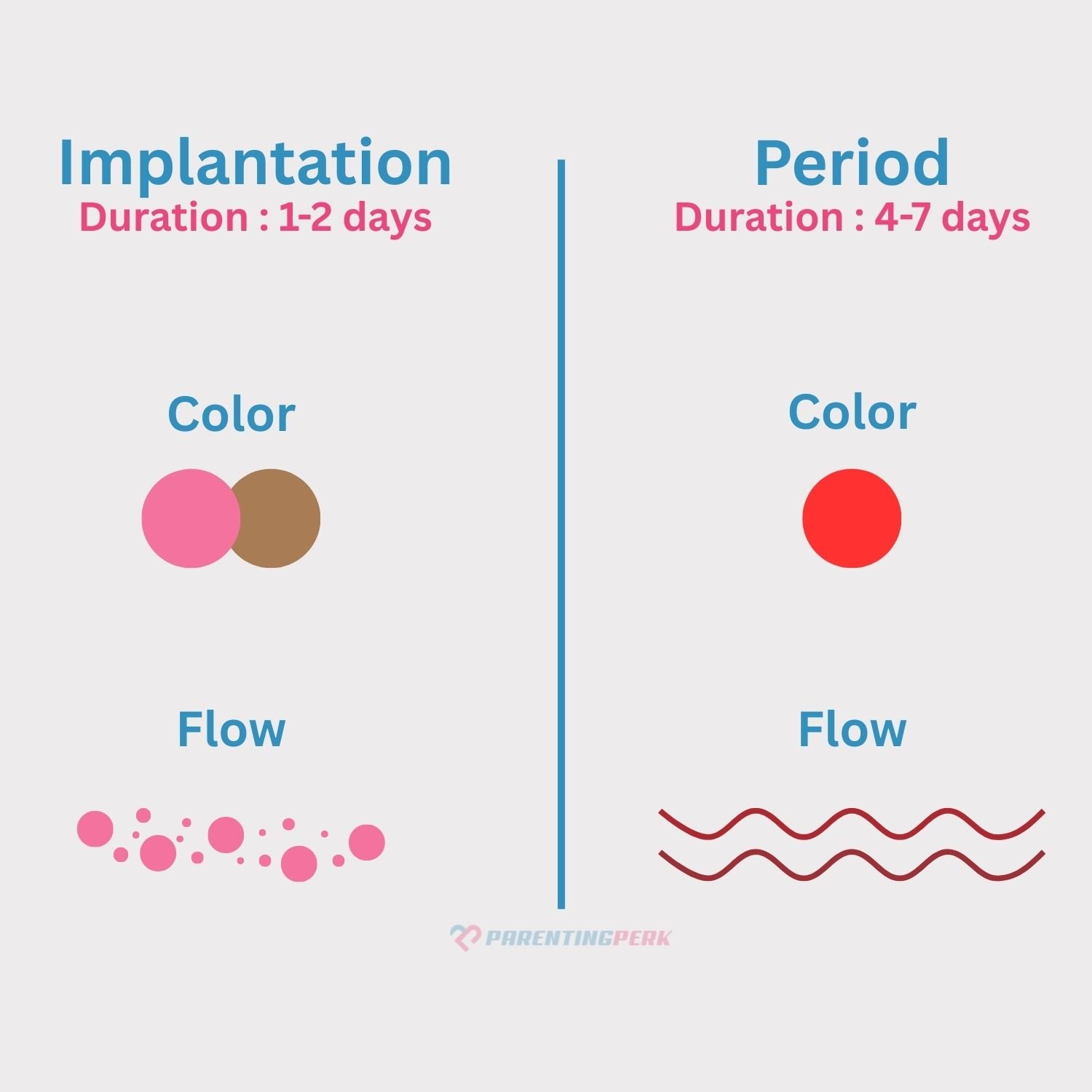Implantation bleeding is one of the earliest potential signs of pregnancy, yet it often causes confusion because it can be mistaken for a light period. Understanding its timing, symptoms, and how it differs from a menstrual period can help you recognize what your body is experiencing.
What Is Implantation Bleeding?
Implantation bleeding occurs when a fertilized egg attaches to the lining of the uterus, typically happening about 6 to 12 days after ovulation. This process can cause light spotting, which is completely normal and usually harmless. However, because implantation bleeding happens around the time a period is expected, many women mistake it for an early, light period.
When Does Implantation Bleeding Occur?
Implantation bleeding generally occurs one to two weeks after ovulation and a few days before your expected period. If you notice light spotting and suspect pregnancy, it’s a good idea to take a home pregnancy test after a missed period for confirmation.
How to Recognize Implantation Bleeding
Many women wonder, “What does implantation bleeding look like?” Unlike a typical period, implantation bleeding is usually:
- Light pink or brown in color (not bright red like a period)
- Much lighter in flow, often just light spotting
- Short-lived, lasting a few hours to a couple of days at most
- Not accompanied by heavy cramps or clotting
Implantation Bleeding vs. Period
Since implantation bleeding occurs close to when a period is expected, it’s important to understand the key differences:
| Feature | Implantation Bleeding | Menstrual Period |
| Color | Light pink or brown | Bright red to dark red |
| Flow | Very light spotting | Moderate to heavy |
| Duration | A few hours to two days | 3 to 7 days |
| Cramps | Mild or no cramps | Moderate to severe cramps |
| Clots | No clots | Possible clotting |

How Long Does Implantation Bleeding Last?
Unlike a normal period, which can last three to seven days, implantation bleeding typically lasts a few hours to two days. If your spotting continues longer than a few days or turns into a heavier flow, it may be an early period or another medical condition.
Symptoms of Implantation Bleeding
Some women experience mild early pregnancy symptoms alongside implantation bleeding. These symptoms may include:
- Light cramps: Unlike period cramps, implantation cramps are usually mild and short-lived. These cramps are often described as a dull ache or slight pulling sensation in the lower abdomen.
- Fatigue: Early pregnancy hormones, such as progesterone, can make you feel more tired than usual. You may notice yourself needing more rest or feeling exhausted despite a full night’s sleep.
- Nausea: Some women may experience mild nausea or an unsettled stomach, commonly known as morning sickness. This symptom can start early but often intensifies later in pregnancy.
- Slight breast tenderness: Hormonal changes may cause the breasts to feel slightly sore or sensitive. You may also notice darker or more pronounced veins on your breasts.
- Increased sense of smell or taste: A heightened sensitivity to smells or changes in taste perception is common in early pregnancy. Foods you once enjoyed may suddenly seem unappealing or overly strong in flavor.
- Mood swings: Hormonal fluctuations can lead to slight emotional changes or moodiness. You may feel more emotional, teary, or irritable than usual.
- Frequent urination: Some women notice an increased need to urinate early in pregnancy due to hormonal changes affecting kidney function.
- Mild dizziness or lightheadedness: A drop in blood pressure or changes in circulation may cause occasional dizziness or a feeling of being off-balance.
Light Bleeding After Missed Period – Am I Pregnant?
If you notice light bleeding after a missed period, it could be implantation bleeding, but it could also be caused by hormonal fluctuations, cervical irritation, or other factors. If you suspect pregnancy, taking a test after your missed period is the best way to confirm.
Final Thoughts
Implantation bleeding is a natural and common early sign of pregnancy. Recognizing the differences between implantation bleeding and a period can help ease uncertainty. If you experience unusual spotting, severe cramps, or prolonged bleeding, consulting a healthcare provider is always a good idea.
If you suspect you’re pregnant, consider taking a home pregnancy test and following up with a medical professional to ensure a healthy start to your pregnancy journey.
